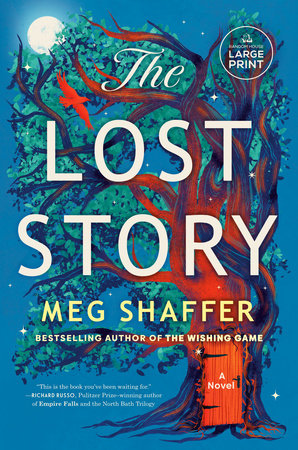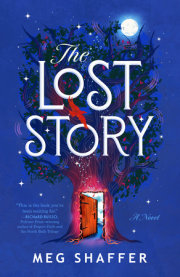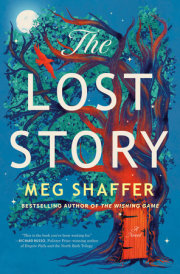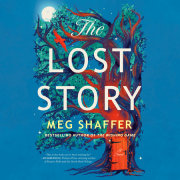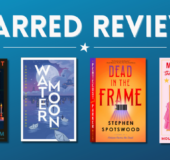Chapter One
Our Story Now Begins The drive from Emilie Wendell’s house in Milton, Ohio, to Bernheim Forest outside Louisville took a good two and a half hours. She’d wanted to make it in two hours and fifteen minutes, but accident traffic caused a bottleneck on I-65 south. She prayed the taping would be delayed. These things never started on time, right?
For weeks, she’d been internet-stalking Jeremy Cox, hoping and praying he’d somehow end up near her house. Then finally, that morning, she’d woken up to a Google alert in her email. A documentary TV show called
Whereabouts Unknown would be doing a taping at Bernheim that day—special guest, the famed missing persons investigator Jeremy Cox. She’d thrown on yesterday’s clothes—red leggings, a T-shirt, and a hoodie, stuffed her feet into her boots, and ran out of the house.
Two and a half hours of frantic driving was a small price to pay for the chance to meet with Jeremy Cox in person. As soon as she arrived, she parked, grabbed her backpack, and then jogged down the path to the visitor’s center.
The day was October 10, and the weather was cloudy and cold. Cold for Kentucky, anyway. Even so, she was sweating by the time she reached the outdoor stage. She found two park employees putting chairs back into stacks. A flyer printed on neon orange paper advertised Jeremy Cox’s safety talk. It seemed to be over already.
“Did I miss the show?” she asked the employee, embarrassed by her breathless voice. “I’m supposed to meet with Jeremy Cox,” she added, so it wouldn’t sound like she was some creepy fangirl but someone who had an appointment.
An older woman pointed down a trail. “The talk’s over, but they’re doing the taping near the pond by Little Nis.”
“Right, Little Nis.” Emilie thanked the woman and ran down the trail.
She found the pond and walked around the bend until she spotted the first of the Forest Giants. She’d read about the famous art installation but wasn’t prepared for the sheer size of them. Twenty feet tall or more. Impressive in photos but jaw-dropping in person. There were three of them, she knew, a family of enormous trolls. This was Little Nis, the son. Somewhere in the park was his pregnant mother troll and his sister.
Emilie and her mom had planned to see them, but they’d never made the time. And then, of course, there was no more time to make.
She pushed thoughts of her mom out of her head. Emilie had never been great at focusing, but today, she would do it. She had to.
And there he was. Jeremy Cox. He stood on a footbridge with his back to the pond. He looked just like all his pictures online. He had rust-red hair, a perfectly groomed beard, and was dressed like a hip young rock climber. Gray fitted long-sleeved T-shirt. Canvas cargo pants, the kind made for climbing. Brown hiking boots, well worn, she noted. A TV crew of three surrounded Jeremy while a woman with a pitch-perfect NPR voice asked him questions he’d probably been asked a billion times before.
Interviewer: So, Jeremy, why only girls? You have this incredible skill, but only use it to help find missing girls.
Jeremy: Girls and women.
Interviewer: Right. But why just them? No boys at all?
Jeremy: Women get lost differently than men, who get lost differently than small children, who get lost differently than the elderly. A lot of psychology goes into it. It makes sense to specialize.
Interviewer: In ten years, you’ve found fifty missing women and girls and recovered fourteen bodies. That’s an astounding level of success for one person. And all over the world too.
Emilie listened while the woman ticked off some of the countries where Jeremy had tracked and found missing people. A toddler who’d wandered off the family farm in Brazil. The girlfriend of a billionaire who’d disappeared on vacation in St. Barts. A French hiker with a broken leg trapped in a ravine in Greece.
Even in countries he’d never stepped foot in before, in harsh climates, in unforgiving landscapes, Jeremy Cox had an uncanny knack for finding the lost, dead or alive.
Interviewer: Do you always find your man? I mean, your woman? Your girl?
Jeremy: Not always.
Interviewer: No?
Jeremy: There’s still one out there I’m looking for.
Interviewer: But only one? Unbelievable. What’s your secret?
Jeremy: There’s no magic to it. I’ve been on the other end of a search party. Most people in search-and-rescue haven’t. I know what it’s like to be lost. And I’m very, very lucky.
Interviewer: Let’s say I’m lost in a wooded area like this. What should I do to aid in my own rescue?
Jeremy: Even in thick forest terrain, someone lost can travel about two miles per hour. In two hours, that’s a four-mile radius, making for a possible search area of over fifty square miles. That’s why we tell people to stay put and let someone find them. Unfortunately, studies have shown about sixty-five percent of lost people in that situation don’t stay put.
Interviewer: Why is that?
Jeremy: Denial.
Interviewer: Denial?
As if sensing Emilie’s stare, Jeremy glanced at her. They were only twenty feet apart, close enough that she knew he was looking at her, searching her face. His brow furrowed as if he was trying to place her, but then he turned back to the woman interviewing him.
Jeremy: Nobody wants to admit they’re lost.
The interviewer laughed. She turned to the director.
“That’s good,” she said, sounding like a completely different, almost normal person. “Good line to end on.”
“Are we finished?” Jeremy asked. He had the slightest hint of an English accent.
“One more,” she said, then turned her NPR voice back on.
Interviewer: If Ralph Howell were lost out there again, would you make an exception to your “girls only” rule and try to find him?
Emilie watched as Jeremy Cox’s jaw set and his eyes turned to granite. They would get an answer from the Forest Giants before getting one out of him.
“You were right,” Jeremy said, glancing her way again. “That was a good line to end on.”
While the camera guy was getting some footage of Little Nis and the surrounding woods, the woman interviewing Jeremy took him aside and whispered something. An apology, maybe? Was the topic of Ralph Howell forbidden or something?
Whatever they were talking about, it was over in minutes. An assistant even younger than Emilie helped Jeremy remove his mic pack from his shirt and jacket.
Jeremy shook a few hands, waved a quick goodbye to the crew, and started down the trail back toward the visitor’s center.
Emilie jogged after him.
“Hello?” she said as she caught up to him.
“Hey,” he said and kept walking, but he slowed down a beat, which she appreciated.
“I’m not with the show.” Her breath was short and fast, but she pasted on a smile and pretended she wasn’t about to pass out from overstimulation. “My name’s Emilie. You’re Jeremy Cox, right?”
“Usually,” he said. “What’s up?”
“Can I talk to you for a second? I won’t bring up Ralph Howell, swear.”
He glanced at her, the ghost of a smile on his lips. His eyes were alive now, not glazed over like they’d seemed during the interview.
Jeremy shrugged. “Thanks. He’s a private person. I ask people to leave him alone. They just can’t.”
Nodding, she said, “Right, right. Stevie and Lindsey all over again.”
He looked at her. “Who?”
She’d jogged in front of him and then stopped, which forced him to stop. She unzipped her hoodie to reveal her T-shirt underneath—a vintage Fleetwood Mac concert shirt, the one with the penguins and the baseball sleeves.
“Stevie Nicks. Lindsey Buckingham. Everybody wants to get the band back together.”
“Nice shirt,” he said. He had hazel eyes, like a summer forest—evergreen trees, rich earth, golden sunlight—and they lit up when he smiled or even almost smiled. She had a feeling there was a very different Jeremy Cox underneath the stone-faced TV persona.
“Thanks. Stevie Nicks is my lady and savior.”
His eyebrows slightly lifted. “She’s a little before your time, isn’t she?”
“Stevie Nicks transcends space and time,” she said. “Was that weird? I talk too much when I’m nervous. Or just in general. Can you say something weird so I’ll feel less awkward?”
Copyright © 2024 by Meg Shaffer. All rights reserved. No part of this excerpt may be reproduced or reprinted without permission in writing from the publisher.

